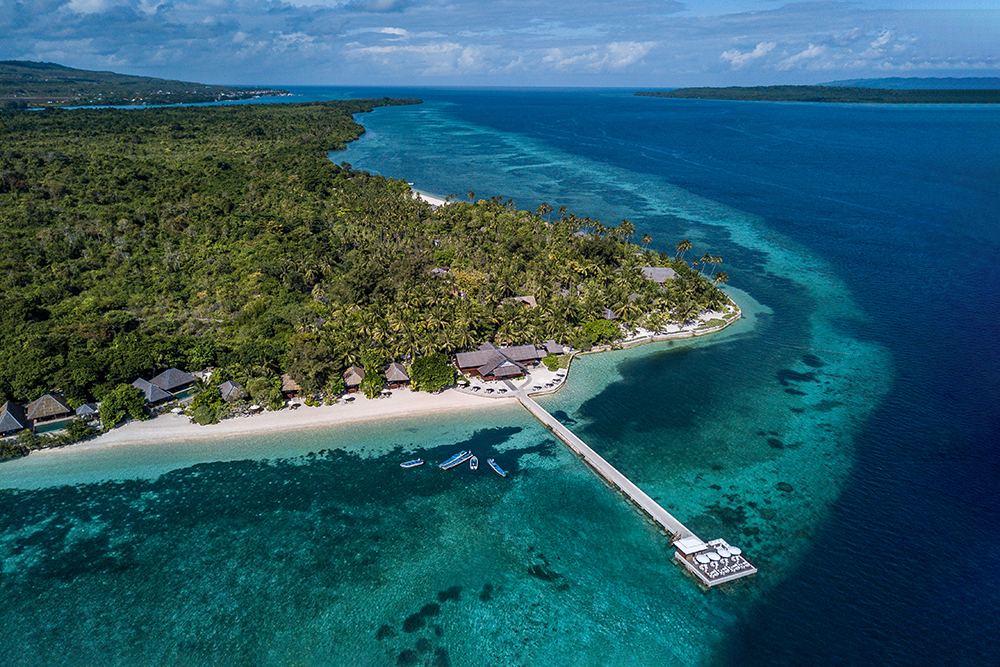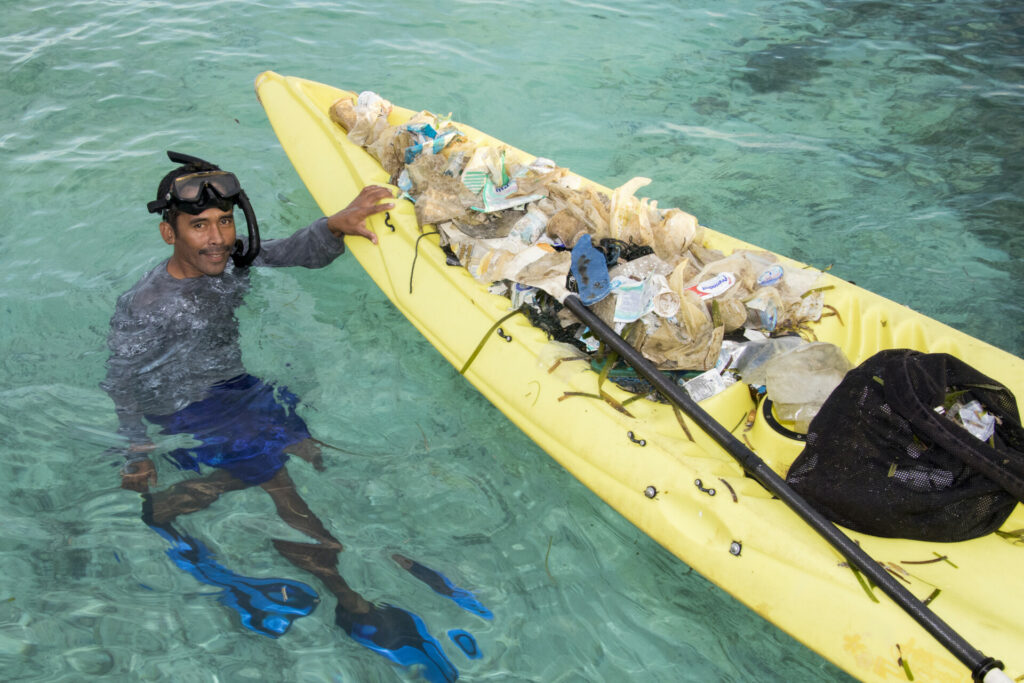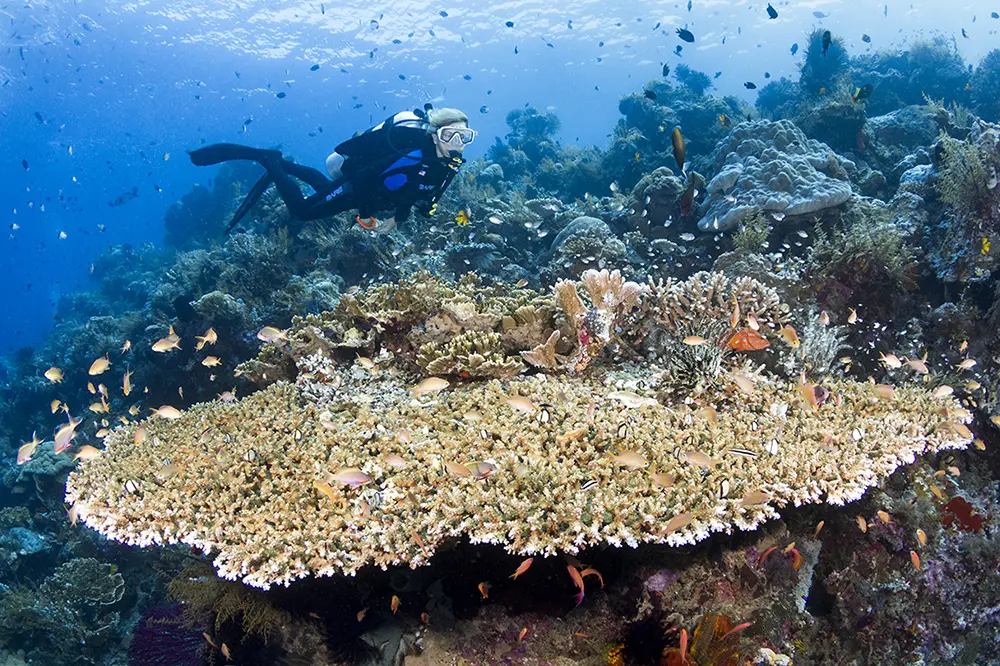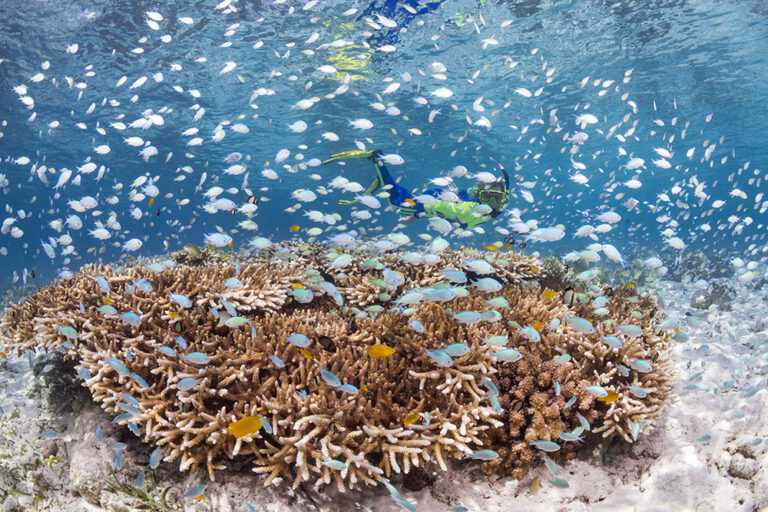Through the resort's dedication to reef conservation Wakatobi's coral reefs are among the healthiest in the world.
The world has finally woken up to the realization that the oceans are not dumping grounds.
And while some call for plastic bans and government regulations, a growing number of organizations and communities confront the issue head on by organizing waste reduction, recycling, and cleanup projects at a local level.
Wakatobi has not only understood this concept since opening its doors in 1995 it is a part of its genetic makeup.

More than twenty-five years ago, Wakatobi's founder, Lorenz Mäder, established a community-based conservation program that provides proactive protection for some 20 kilometers of coral reef and many social benefits to the local villages.
This initiative has helped restore and maintain these reefs in near-pristine condition by eliminating destructive fishing practices, anchor damage and other human impacts. And these efforts don't stop at the waterline.
Lorenz and the team at Wakatobi are committed not only to protecting the reefs, but to keeping waters, beaches, and the islands free of trash and waste through a variety of local engaging hands-on projects via its Wakatobi Collaborative Reef Conservation Program.

This all begins at the resort. Wakatobi has established its own recycling station, and actively works to reduce the use of disposable plastic items in all phases of resort operation.
Guests use reusable aluminum water containers to eliminate the use of plastic.
To combat the problem of plastic waste carried by ocean currents the staff engages in ongoing debris removal efforts.
Sometimes up to four times a day, the Wakatobi team cleans a kilometer (or more) of surrounding beach, removing plastics and any other debris that may wash ashore.
The dive team collects any trash and debris that may be found on the reefs while other team members operating taxi boats or other tasks assisting snorkelers and divers make similar efforts to keep the shallow reef tops clean.

Wakatobi's commitments to environmental protection and cleanup go far beyond the resort boundaries. The resort sponsors weekly village cleanups that involve up to 100 local people and works closely with the communities and governments on the issues of waste management.
Wakatobi provides waste bins, organizes waste collection vehicles and sponsors additional waste storage and removal mediums for the adjacent island of Tomia.
To enhance local awareness of the issues, and promote sustainable practices, the resort pays a team of well-respected community leaders and influential individuals.
These spokespersons use their social status within the community to increase public awareness on the issues of reef conservation and waste management on Tomia where the Wakatobi airstrip is located.

Lorenz and the entire Wakatobi team remain personally committed to the issues of waste management and water quality.
“In my voluntary function as an eco-tourism consultant I have had countless discussions with ministers, governors and other high-ranking politicians and policy makers,” he says. “I always urge them to improve nationwide waste management on land and on boats.”
As coastal communities around the world increasingly come to terms with the urgent need for more responsible waste management practices, and the equally important need for the control and removal of debris already polluting our oceans, community-based programs such as those initiated by Wakatobi Dive Resort may emerge as one for the best solutions to the issue.

